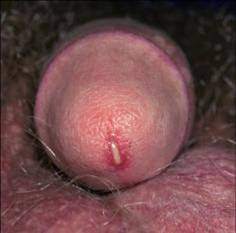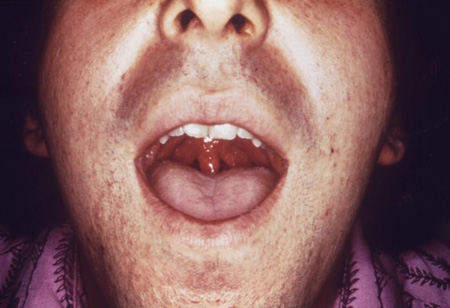Education
- Treatment Of Gonorrhoea
Gonorrhoea is usually treated with a short course of antibiotics. Treatment is recommended if: tests have shown that you have gonorrhoea (see diagnosing gonorrhoea for more information) there is a high chance that you have gonorrhoea, even though...
- Diagnosing Gonorrhoea
The only way to find out if you have gonorrhoea is to be tested. If you suspect that you have it or any other sexually transmitted infection (STI), it's important not to delay getting tested. ...
- Know About Pneumonia
What Is Pneumonia? » 5 Facts You Should Know about PneumoniaPneumonia is an infection in one or both of your lungs. Many small germs, such as bacteria, viruses, and fungi, can cause pneumonia. Pneumonia is not a single disease. It can have more than...
- Symptoms, Diagnosis And Treatment Of Pneumonia
What Are the Symptoms of Pneumonia? The most common symptoms of pneumonia are: Cough (with some pneumonias you may cough up greenish or yellow mucus, or even bloody mucus)Fever, which may be mild or highShaking chillsShortness of breath, which may only...
- Brief About Ebola
The EBOLA Key facts Ebola virus disease (EVD), formerly known as Ebola haemorrhagic fever, is a severe, often fatal illness in humans. The virus is transmitted to people from wild animals and spreads in the human population through human-to-human...
Education
Symptoms Of Gonorrhoea
Symptoms of gonorrhoea usually develop within about 10 days of being infected, although they sometimes may not appear until many months later.
About 1 in 10 infected men and half of infected women will not experience any obvious symptoms, which means the condition can go untreated for some time.
In women, symptoms of gonorrhoea can include:
In men, symptoms of gonorrhoea can include:
Both men and women can also develop an infection in the rectum, eyes or throat by having unprotected anal or oral sex. If infected semen or vaginal fluid comes into contact with the eyes, you can also develop conjunctivitis.
Infection in the rectum can cause discomfort, pain or discharge. Infection in the eyes can cause irritation, pain, swelling and discharge. Infection in the throat usually causes no symptoms.
If gonorrhoea is left undiagnosed and untreated, you can continue to spread the infection and there is a risk of potentially serious complications, including infertility.
About 1 in 10 infected men and half of infected women will not experience any obvious symptoms, which means the condition can go untreated for some time.
Symptoms in women
- an unusual vaginal discharge, which may be thick and green or yellow in colour
- pain or a burning sensation when passing urine
- pain or tenderness in the lower abdominal area (this is less common)
- bleeding between periods, heavier periods and bleeding after sex (this is less common)
Symptoms in men
- an unusual discharge from the tip of the penis, which may be white, yellow or green
- pain or a burning sensation when urinating
- inflammation (swelling) of the foreskin
- pain or tenderness in the testicles (this is rare)
Infection in the rectum, throat or eyes
Infection in the rectum can cause discomfort, pain or discharge. Infection in the eyes can cause irritation, pain, swelling and discharge. Infection in the throat usually causes no symptoms.
Seeking medical advice
It's important to be tested for gonorrhoea if you think there is a chance you are infected, even if you have no obvious symptoms or the symptoms have gone away on their own.If gonorrhoea is left undiagnosed and untreated, you can continue to spread the infection and there is a risk of potentially serious complications, including infertility.
- Treatment Of Gonorrhoea
Gonorrhoea is usually treated with a short course of antibiotics. Treatment is recommended if: tests have shown that you have gonorrhoea (see diagnosing gonorrhoea for more information) there is a high chance that you have gonorrhoea, even though...
- Diagnosing Gonorrhoea
The only way to find out if you have gonorrhoea is to be tested. If you suspect that you have it or any other sexually transmitted infection (STI), it's important not to delay getting tested. ...
- Know About Pneumonia
What Is Pneumonia? » 5 Facts You Should Know about PneumoniaPneumonia is an infection in one or both of your lungs. Many small germs, such as bacteria, viruses, and fungi, can cause pneumonia. Pneumonia is not a single disease. It can have more than...
- Symptoms, Diagnosis And Treatment Of Pneumonia
What Are the Symptoms of Pneumonia? The most common symptoms of pneumonia are: Cough (with some pneumonias you may cough up greenish or yellow mucus, or even bloody mucus)Fever, which may be mild or highShaking chillsShortness of breath, which may only...
- Brief About Ebola
The EBOLA Key facts Ebola virus disease (EVD), formerly known as Ebola haemorrhagic fever, is a severe, often fatal illness in humans. The virus is transmitted to people from wild animals and spreads in the human population through human-to-human...



